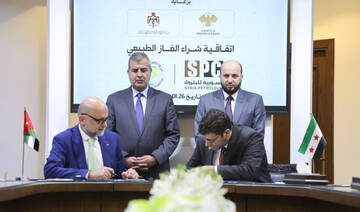KHARTOUM: Thousands of protesters marching in the Sudanese capital Khartoum faced tear gas on Friday as they demonstrated against an almost year-long military coup amid efforts to come to a political settlement.
Sudan has slid further into political and economic turmoil since the Oct. 25, 2021 coup, but political parties said this week that discussions had begun, supported by international facilitators, to reach an agreement to form a new civilian government.
Many of the protesters marching on Friday, however, rejected the settlement, carrying signs reading “No Compromise” and chanting “No negotiation, no partnership with killers.”
At least 117 people have been killed by security forces in the anti-coup protests. Military leaders have said investigations into the deaths are in place.
Security forces, deployed heavily in central Khartoum, were seen firing tear gas and chasing protesters about 1km away from the airport.
The US Embassy in Khartoum has warned of further violence, calling on security forces to “refrain from using violence against protesters” in a tweet on Thursday.
In addition to the protests in Khartoum on Friday, hundreds also gathered in Wad Madani, said a resident of the city, Adel Ahmed.
Tear gas was also fired at marchers across the Nile in Omdurman, and an injured protester was seen being carried away.
Other protests took place in the neighboring town of Bahri, as well as across the country in Nyala, Atbara, and Gadaref, among other cities.
FASTFACT
At least 117 people have been killed by security forces in Sudan’s anti-coup protests.
The protests, falling on the anniversary of a 1964 uprising, were called for by the neighborhood resistance committees that have rejected talks with the military, as well as the political parties currently engaged in discussions.
Protesters of all ages could be seen marching on the capital’s Airport Road, carrying speakers and hanging posters.
Others burned tires to block off roads.
“This revolution will continue, we refuse any compromise,” said Jamal Salah, a 36-year-old protester.
Also on Friday, the governor of Sudan’s southern Blue Nile state declared a state of emergency, giving security forces full powers to stop ethnic fighting that has left 150 people dead.
“The state of emergency is decreed in the whole of Blue Nile state for 30 days,” said the provincial decree for the state bordering South Sudan and Ethiopia.
It called on commanders of the police, army, intelligence services and the paramilitary Rapid Support Forces “to intervene by all possible means to stop inter-tribal fighting.”
Clashes in Blue Nile broke out last week after reported disputes over land between members of the Hausa people and rival groups, with residents reporting hundreds fleeing intense gunfire and homes set ablaze.
The fighting has centered around the Wad Al-Mahi area near Roseires, some 500 km south of Khartoum.
“A total of 150 people, including women, children and elderly, were killed between Wednesday and Thursday,” said the head of Wad Al-Mahi hospital, Abbas Moussa.
“Around 86 people were also wounded in the violence.”
The authorities had imposed a nighttime curfew on Monday after 13 people were killed in clashes between the Hausa and rival groups, according to the UN, but the violence then flared again.
On Thursday, several hundred people demonstrated in the Blue Nile capital, Damazin, shouting: “No to violence.”
















